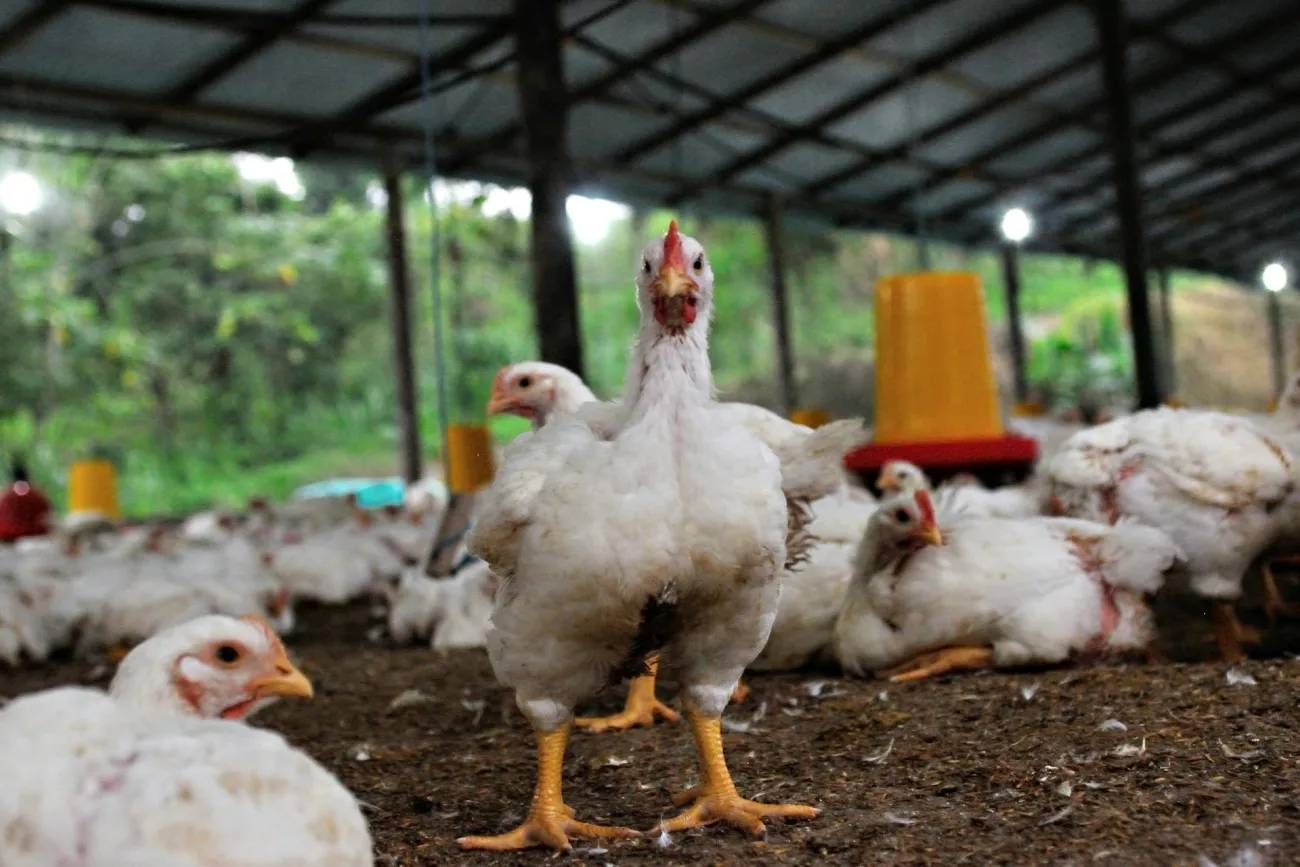In this edition of FODDER, our main focus is on the US election. It’s about how food and corporate power has become a central part of Kamala Harris’ agenda through her commitment to a ban on price gouging. TABLE speaks to Professor Zephyr Teachout, a renowned US legal scholar specializing in price gouging and monopolies. She explains what price gouging is, what exactly Kamala Harris is planning and why there’s a growing appetite to take on the power of food corporations.

In this edition of FODDER, our main focus is on the US election. It’s about how food and corporate power has become a central part of Kamala Harris’ agenda through her commitment to a ban on price gouging. She said this would “go after bad actors to bring down Americans’ grocery costs and keep inflation in check.”
Price gouging refers to the practice of sharply increasing prices on essential goods and services during emergencies, like natural disasters. In recent years, dominant food companies and agribusinesses have used supply chain disruptions, such as the Covid 19 pandemic or the war in Ukraine, to raise prices on consumers and make huge profits.
In TABLE’s annual survey, 83% of respondents said corporate interests were the biggest challenges to a sustainable and just food system – Harris seems to be listening. Price gouging laws have been mentioned 175,000 times on Harris’ ads so far - it’s a message that’s resonating among voters.
We speak to Professor Zephyr Teachout, a renowned US legal scholar specializing in price gouging and monopolies. She explains what price gouging is, what exactly Kamala Harris is planning and why there’s a growing appetite to take on the power of food corporations.
(On the subject of power - we spent a whole year writing about this at TABLE. Discover what we learnt in this podcast - and watch out for our report, which will be out later this year)
Price gouging is happening across the food system:
- Global fertilizer companies made 500% more profit in 2022 than 2020 due to the war in Ukraine.
- In January 2023, the average cost of eggs increased by 138% in the US. Dominant companies blamed avian flu. But the largest egg corporation, Cal-Maine — which hadn’t reported a single case of avian flu — increased its gross margins five-fold during this time.
- During a Federal Trade Commission investigation, US supermarket Kroger admitted to raising prices on essentials like milk and eggs beyond what inflation justified, effectively squeezing consumers for extra profit.
Zephyr Teachout is a Professor of Law at Fordham Law School where she focuses on the intersection of corporate and political power. She worked on the recent price gouging regulation in New York and her public writings have appeared in the New York Times, the Atlantic, Foreign Affairs, New York Review of Books, Washington Post, The Nation and The New Republic.
TABLE: How could a price gouging ban lead to sustainable and just food systems?
ZT: Price gouging bans would contribute to food sustainability more indirectly, than directly. Price gouging builds up profits and power which leads to even more market concentration. We know there’s a clear link between market concentration and unsustainable practices across the food sector. But price gouging laws are not a replacement for addressing concentration through antitrust [laws and regulations that limit market power of firms to promote competitiveness].
I think of price gouging laws as poor man's antitrust.
TABLE: What are price gouging and price gouging laws?
Zephyr Teachout: I think of price gouging in two different ways. One is that it's a very well-established area of law. The overwhelming majority of states in the United States have price gouging laws. Price gouging also has a broader political meaning that relates to when prices are unfairly raised because of a real asymmetry in information or a shock to the system.
Price gouging laws come into effect only in periods where there's some abnormal disruption of the market. In most states that is defined. In New York, it includes power failures, strikes, war, military action, failure of power systems, major weather events, national emergency, state of emergency. [Zephyr worked on the price gouging reforms in New York in 2023]
Once the price gouging statute is triggered, then producers can't raise their profit margins by a certain percentage. However, you can always raise your price because of increased costs. So, if you are a gas station that raises your price because the price of gas has increased, there's no price gouging.
It has become a mainstream part of our legal system because the public has decided you should not be able to take advantage of those moments of shock to increase your profit margin.
TABLE: If states already have laws against price gouging, what is Kamala Harris proposing in her agenda, and why?
ZT: There's basically a big enforcement gap. All the states have price gouging laws but there’s no federal law [this is what Harris is proposing]. State price gouging laws can easily reach the small-time seller. They can reach the fast-food restaurant, the deli and the grocery store. But when we talk about the price of meat, it's very hard for the state laws to reach the big profit margin hikes that are happening upstream.
There is substantial public evidence that the four big meat packers radically increased their prices in selling to grocery stores, restaurants and other retailers. In that case, the consumer might experience across the price hike at the restaurant or at the grocery store. But the restaurant or the grocery store might have just passed on the increased costs that came to them.
A federal prohibition can look upstream and say the real margin bump is at the meat packer plant.
This is why Harris’ proposed legislation is so important because [at the moment] upstream sellers get a de facto pass with current price gouging laws.
A federal ban would help level the playing field between the big upstream suppliers and distributors, many of whom have really significant market power and can effectively set prices in restaurants and retailers.
Why are there increasing abuses of prices such as gouging in the food industry?
ZT: Part of the reason is because those industries are so concentrated.
The picture in the US:
- Four corporations control 85% of beef processing,
- 70% of pork processing, and over 90% of the soda market.
- The top four grocery chains control 69% of all grocery sales nationally, with even higher concentrations in certain regional markets.
A market shock gives companies an opportunity to gouge [such as the invasion of Ukraine and the Covid-19 Pandemic]. It's a lot harder to gouge if there are if there's a truly [competitive] market than if there are three big suppliers or producers in a certain category
The fact that it’s on Harris’ agenda, does it signal that there’s an appetite to take on corporate concentration?
ZT: The public deeply understands the problem of corporate concentration. The public anger at big corporations is crystallizing as they realize that big corporations are screwing them over. The combined market shocks of Covid-19 and the Russian invasion of Ukraine and the really significant price hikes that followed them dealt a death blow to the 40-year argument that we should basically allow massive concentration.
[TABLE: Since the 1980s, both Democratic and Republican parties have relaxed antitrust policy to prioritize consumer prices. As a result many mergers and acquisitions were approved, leading to some of the highest concentration in the food and agriculture sector. Globally, many countries followed suit. Europe saw less rigorous enforcement for years but maintained more consistent regulations around consumer protection.]
Price gouging has been mentioned 175,000 times on Harris' ads so far - it seems to be an issue that resonates among voters?
When the campaign is spending its money on the phrase 'crackdown on price gouging' as the first thing that you see when you turn on an ad about Harris, that's pretty strong evidence that this is absolutely resonating. I think politicians are relearning very powerful language.
What do you think governments should do to make a fair, healthy and sustainable food sector?
Let us know at jackthompson@tabledebates.com and you could feature in the next edition of FODDER.




Comments (0)